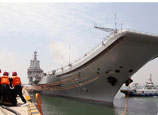
WASHINGTON, June 11 (Xinhua) -- The United States should support a larger role for China in the current global economic governance architecture as the two nations have much to gain from cooperation on global issues, U.S. experts said here Tuesday.
KINDLEBERGER CONUNDRUM
After World War II, the United States played an instrumental role in establishing the global economic governance architecture, including the International Monetary Fund (IMF) and the World Bank, giving itself unprecedented influence.
After more than half a century, the paramount economic challenge for the two countries' policymakers is to overcome what might be called the "Kindleberger Conundrum," named after U.S. economic historian Charles Kindleberger, said Arvind Subramanian, a senior fellow at the Peterson Institute for International Economics, at a luncheon seminar hosted by the Washington-based think tank.
According to the theory, he said, the preservation of an open, rule-based multilateral economic system goes against the backdrop of the historic shift, in which rising powers might be unwilling to sustain it at a time when a declining power is increasingly unable to single-handedly shoulder the burdens of leadership.
The two countries must overcome their mutual wariness, not simply on specific issues, but on how they view their systems and their roles in the world, Subramanian said, adding that there is reason to be optimistic about an open global economic system through the bilateral cooperation.

















 Teacher detained for molesting school girls | Special coverage: Zero tolerance to child molestation
Teacher detained for molesting school girls | Special coverage: Zero tolerance to child molestation


![]()
